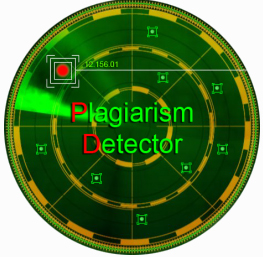Pengembangan Game Pembelajaran Teori Atom Dasar Model RPG sebagai Pendekatan Pengenalan Pembelajaran Kimia Sekolah Menengah Pertama
Abstract
Full Text:
PDFReferences
L. Sun, Y. Tang, and W. Zuo, “Coronavirus Pushes Education Online,” Nat. Mater., vol. 19, pp. 687, 2020.
Purwanto, R. Pramono, M. Asbari, P. B. Santoso, L. M. Wijayanti, C. C. Hyun, and R. S. Putri, “Studi Eksploratif Dampak Pandemi COVID-19 terhadap Proses Pembelajaran Online di Sekolah Dasar,” J. Ed. Psychol. Couns., vol. 2, no. 1, pp. 1–12, 2020.
N. Harefa, “Tren Minat Belajar Kimia Mahasiswa terhadap Pembelajaran Online selama Pandemi Covid-19,” in Proc. Seminar Nasional IPA XI 2021, Semarang, Indonesia, 2021, pp. 87-94.
N. D. Wahyuni, A. A. Purwoko, and Y. Andayani, “Pengaruh Pembelajaran Daring terhadap Minat Belajar Siswa pada (Mata Pelajaran Kimia) di Masa Pandemi Covid-19,” Jurnal Teknologi Pendidikan: Jurnal Penelitian dan Pengembangan Pendidikan, vol. 7, no. 2, pp. 234-241, 2022.
T. P. T. Simanjuntak, “Kajian Enumerator Pengaruh Pandemik COVID 19 terhadap Minat Pembelajaran Kimia secara Daring di Kecamatan Sumur Bandung, Bandung 2020,” in Proc. Seminar Nasional Kimia dan Pendidikan Kimia, Medan, Indonesia, 2020, pp. 215-228.
Y. D. Puspitarini, and M. Hanif, “Using Learning Media to Increase Learning Motivation in Elementary School,” Anatolian J. Edu., vol. 4, no. 2, pp. 53-60, 2019.
S. Mulyani, and Hardeli, “Praktikalitas E-Modul Kesetimbangan Kimia berbasis Discovery Learning dilengkapi Virtual Laboratory,” Entalpi Pendidikan Kimia, 3(4), pp. 24-30, 2022.
S. L. Cahyani, A. Dhamayanti, H. Mahrunnisa, A. Solakhuddin, and A. M. N. Ikhsan, “Science Card Games berbasis Augmented Reality sebagai Solusi Mengatasi Learning Loss Pasca Pandemi Covid-19,” Jurnal Informatika dan Rekayasa Perangkat Lunak, 3(4), pp. 398-414, 2022.
M. Stojanovska, and B. Velevska, “Chemistry Games in the Classroom: A Pilot Study,” J. Res. Sci. Math. Techn. Edu., vol. 1, no. 2, pp. 113-142, 2018.
D. Melga, and Guspatni, “Pengembangan Media Pembelajaran PowerPoint-iSpring Terintegrasi Pertanyaan Prompting pada Materi Tatanama Senyawa Kelas X SMA/MA,” Entalpi Pendidikan Kimia, vol. 3, no. 1, pp. 1-7, 2021.
A. Abidah, H. N. Hidayatullah, R. M. Simamora, D. Fehabutar, and L. Mutakinati, “The Impact of Covid-19 to Indonesian Education and Its Relation to the Philosophy of “Merdeka Belajar”,” Stud. Philos. Sci. Edu., vol. 1, no. 1, pp. 38–49, 2020.
H. N. P. A. Putri, and S. Kusairi, “The Impact of Learning with the Video Conceptual Understanding Coach Toward Student Conceptual Understanding Force Concept,” in Proc. AIP Conference Proceedings, 2330, 1, 050025, 2021.
R. Adawiyah, A. Z. Robbia, A. Jariah, A. Syukur, and Jamaluddin, “Inovasi Video Pembelajaran Kimia sebagai Solusi Media Pembelajaran pada Masa Pandemi Covid-19 di MAN 2 Kota Bima,” Jurnal Ilmiah Profesi Pendidikan, vol. 6, no. 2, pp. 175-181, 2021.
A. A. Rahman, A. F. Najmuddin, M. F. Abdullah, I. M. Ibrahim, S. S. Shaffie, S. R. Ismail, “The Development of Atomic Game-Based Learning for Chemistry,” Int. J. Acad. Res. Bus. Soc. Sci., vol. 10, no. 11, pp. 1364–1372, 2020.
T. Gupta, “Game-Based Learning in Chemistry: A Game for Chemical Nomenclature,” in Technology Integration in Chemistry Education and Research (TICER), ACS Symposium Series, Washington, DC., 2019.
T. Wiranda, and M. Adri, “Rancang Bangun Aplikasi Modul Pembelajaran Teknologi WAN Berbasis Android,” Vocational Teknik Elektronika dan Informatika, vol. 7, no. 4, pp. 2302-3295, 2019.
U. Verawardina, L. Asnur, A. L. Lubis, and Y. Hendriyani, “Reviewing Online Learning Facing the Covid-19 Outbreak,” Talent Dev. Excellence, vol. 12, no. 3, pp. 385–392, 2020.
M. P. Safira, and Effendi, “Validitas Media Pembelajaran Interaktif berbasis Website CMS-WordPress pada Materi Hidrokarbon SMA,” Entalpi Pendidikan Kimia, vol. 3, no. 1, pp. 40-48, 2022.
R. Ibrahim, A. Jaafar, “Educational Games (EG) Design Framework: Combination of Game Design, Pedagogy and Content Modeling,” in Proc. 2009 International Conference on Electrical Engineering and Informatics, Selangor, Malaysia, 2009, pp. 293-298.
J. H. Chen, T. K. Shih, and J. Y. Chen, “To Develop the Ubiquitous Adventure RPG (Role Play Game) Game-Based Learning System,” in Proc. 2012 IEEE International Conference on Systems, Man, and Cybernetics (SMC), Seoul, Korea, 2012, pp. 2973-2978.
Z. Chen, C. C. Y. Liao, and T. Chan, “Quest Island: Developing Quest-Driven Learning Model by Blending Learning Tasks with Game Quests in a Virtual World,” in Proc. 2010 Third IEEE International Conference on Digital Game and Intelligent Toy Enhanced Learning, Kaohsiung, Taiwan, 2010, pp. 93-100.
R. N. Sarbini, P. B. Santoso, and O. Setyawati, “Pengembangan Game Content Model untuk Game-Based Learning Pemahaman Berlalu-Lintas,” Jurnal EECCIS, vol. 9, no. 1, 37-42, 2015.
S. Deterding, J. P. Zagal, “The Many Faces of Role-Playing Game Studies,” in Role-Playing Game Studies: Transmedia Foundations, J. P. Zagal, and S. Deterding, Eds., New York, USA: Routledge, pp. 1-16, 2018.
A. Echeverria, C. García-Campo, M. Nussbaum, F. Gil, M. Villalta, M. Améstica, and S. Echeverría, “A Framework for the Design and Integration of Collaborative Classroom Games,” Comp. Edu., vol. 57, no. 1, pp. 1127-1136, 2011.
I. Kniestedt, I. Lefter, S. Lukosch, and F. M. Brazier, “Re-Framing Engagement for Applied Games: a Conceptual Framework,” Entertainment Comput., vol. 41, pp. 100475, 2022.
T. Saravanan, S. Jha, G. Sabharwal, and S. Narayan, “Comparative Analysis of Software Life Cycle Models,” in Proc. 2020 2nd International Conference on Advances in Computing, Communication Control and Networking (ICACCCN), Greater Noida, India, 2020, pp. 906-909.
A. Sinha, and P. Das, “Agile Methodology Vs. Traditional Waterfall SDLC: A case study on Quality Assurance process in Software Industry,” in Proc. 2021 5th International Conference on Electronics, Materials Engineering & Nano-Technology (IEMENTech), Kolkata, India, 2021, pp. 1-4.
A. Järvinen, “Game Design for Social Networks: Interaction Design for Playful Dispositions,” in Proc. ACM SIGGRAPH Symposium on Video Games, New Orleans Louisiana, USA, 2009, pp. 95-102.
D. Burgos, C. Tattersall, and R. Koper, “Re-Purposing Existing Generic Games and Simulations for e-Learning,” Comp. Hum. Behav., vol. 23, no. 6, pp. 2656-2667, 2007.
D. Huffaker, J. Wang, J. Treem, L. Fullerton, M. S. Poole, M. A. Ahmad, D. Williams, N. Contractor, “The Social Behaviors of Experts in Massive Multiplayer Online Role-Playing Games,” in Proc. 2009 International Conference on Computational Science and Engineering, Vancouver, BC, Canada, 2009, pp. 326-331.
L. P. I. Harini, I. G. S. Astawa, and I. G. A. M. Srinadi, “Eksplorasi Miskonsepsi Mahasiswa dalam Pengembangan Buku Teks Analisis Real Bermuatan Peta Pikiran,” in Proc. Seminar Nasional Sains dan Teknologi 2014, Denpasar, Indonesia, 2014, pp. 941-949.
Trianto, Model-model Pembelajaran Inovatif Berorientasi Konstruktivistik, Jakarta, Indonesia: Prestasi Pustaka, 2007.
DOI: https://doi.org/10.33365/jatika.v4i2.2476
Refbacks
- There are currently no refbacks.
Copyright (c) 2023 Rizky Arief Shobirin

This work is licensed under a Creative Commons Attribution-ShareAlike 4.0 International License.
Jurnal Informatika dan Rekayasa Perangkat Lunak (JATIKA)
Published by Universitas Teknokrat Indonesia
Organized by Program Studi S1 Informatika, Fakultas Teknik dan Ilmu Komputer
Jl. Zainal Abidin Pagaralam, No.9-11, Labuhanratu, Bandarlampung, Indonesia
Phone : 0721 70 20 22
Website : http://jim.teknokrat.ac.id/index.php/informatika
Email : jatika@teknokrat.ac.id

Jurnal Informatika dan Rekayasa Perangkat Lunak (JATIKA) is licensed under a Creative Commons Attribution-ShareAlike 4.0 International License.













